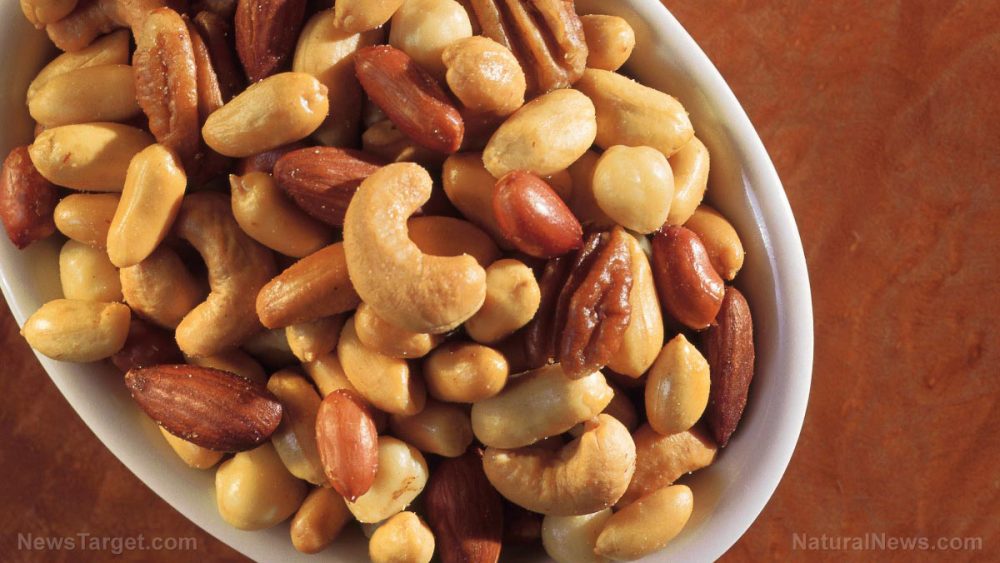
Advertisement
People love nuts, there’s no denying that. They’re packed with protein and are bursting with nutrients that can bring benefits to many parts of your body, including your heart and your gut.
Nuts are a staple part of any healthy diet, and for good reason. Not only are they tasty and convenient, the health benefits they provide are unparalleled. In fact, a recent study published in the Journal of American College of Cardiology found that people who regularly consumed nuts like peanuts, tree nuts, and walnuts had a decreased risk of developing cardiovascular diseases (CVD), as compared to those who did not eat nuts at all. This study is considered one of the longest and largest on the association between nut consumption and lower risk of heart disease to date.
Nuts versus heart diseases
The study, led by Dr. Marta Guasch-Ferre from the Department of Nutrition at Harvard T.H. Chan School of Public Health, compared the frequency of nut consumption to the incidence of heart diseases. The study involved 210,000 people, including females from the Nurses’ Health Study I and Nurses’ Health Study II, and males from the Health Professionals’ Follow-up Study. Data gathered included the individual’s medical history, lifestyles and habits, and their current health conditions. The data was collected using self-administered questionnaires that were answered every two years for 32 years. After that time span, results showed that there was a variety and difference among the decrease in rates of heart diseases, but were all significant.
The study entitled Nut Consumption and Risk of Cardiovascular Disease had its limitations: The sample size was limited to white health professionals; there was no data on the preparation of nuts; and the results were mostly self-reported, and it is considered that errors were inevitable. The endpoint of the study was major cardiovascular disease, which can be defined as a combination of myocardial infarction, or heart attack; stroke; and fatal cardiovascular disease. The second endpoint was total coronary heart disease which included fatal and non-fatal myocardial infarction and total stroke (including both fatal and non-fatal incidences). The results of the study show 14,136 cases of cardiovascular disease; 8,390 cases of coronary heart disease; and 5,910 cases of stroke.
It was found that there was an inverse association between nut consumption and incidence of cardiovascular disease, including other related diseases. Individuals who ate walnuts one or more times per week had a 19 percent decreased risk of cardiovascular disease and 21 percent lower risk of coronary heart disease. Participants who ate peanuts or tree nuts two or more times per week had a 13 to 15 percent and 15 to 23 percent decreased risk of both cardiovascular and coronary heart disease, respectively. Individuals who consumed the most nuts showed the most promising results: Five or more servings of nuts per week resulted in a 14 percent lower chance of developing cardiovascular disease and a 20 percent lower chance of developing coronary heart disease. From the results reported, it can be stated that nut consumption is inversely associated with the risk of heart diseases.
Replace your supplements with nuts
Nuts are natural health capsules – they contain protein, calcium, vitamin E, fiber, selenium, iron, vitamin C, potassium, folate, antioxidant resveratrol, omega-3 fatty acids, monosaturated fats, thiamin, and many more. Nuts, when unprocessed, are naturally low in sodium, and contain sugars that can substitute for unhealthy carbohydrates. Plain and uncooked nuts may benefit an individual more than when it is cooked or processed.
The best types of nuts that contain the most vitamins and minerals are the following:
- Pistachios – These are rich in cholesterol-lowering plant sterols and has the most potassium compared to other nuts (291 milligrams per ounce).
- Almonds – This type of nut contains the most vitamin E compared to other nuts. Almonds also supply up to eight percent of your total daily calcium needs.
- Hazelnuts – Rich in iron and antioxidants, hazelnuts can strengthen blood vessels and prevent UTI.
- Walnuts – These nuts have the most omega-3 fatty acids among other nuts. Walnuts also contain antioxidants that support the immune system.
- Brazil nuts – One nut contains enough selenium to last you a whole day, and has antioxidants that may help prevent breast cancer.
Nuts make some of the best snacks in the world. Add these nutrient powerhouses to your diet to keep your heart healthy.
Sources:
Advertisements







